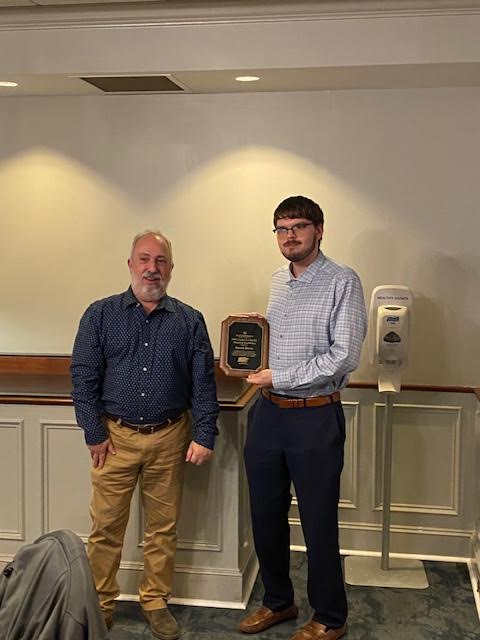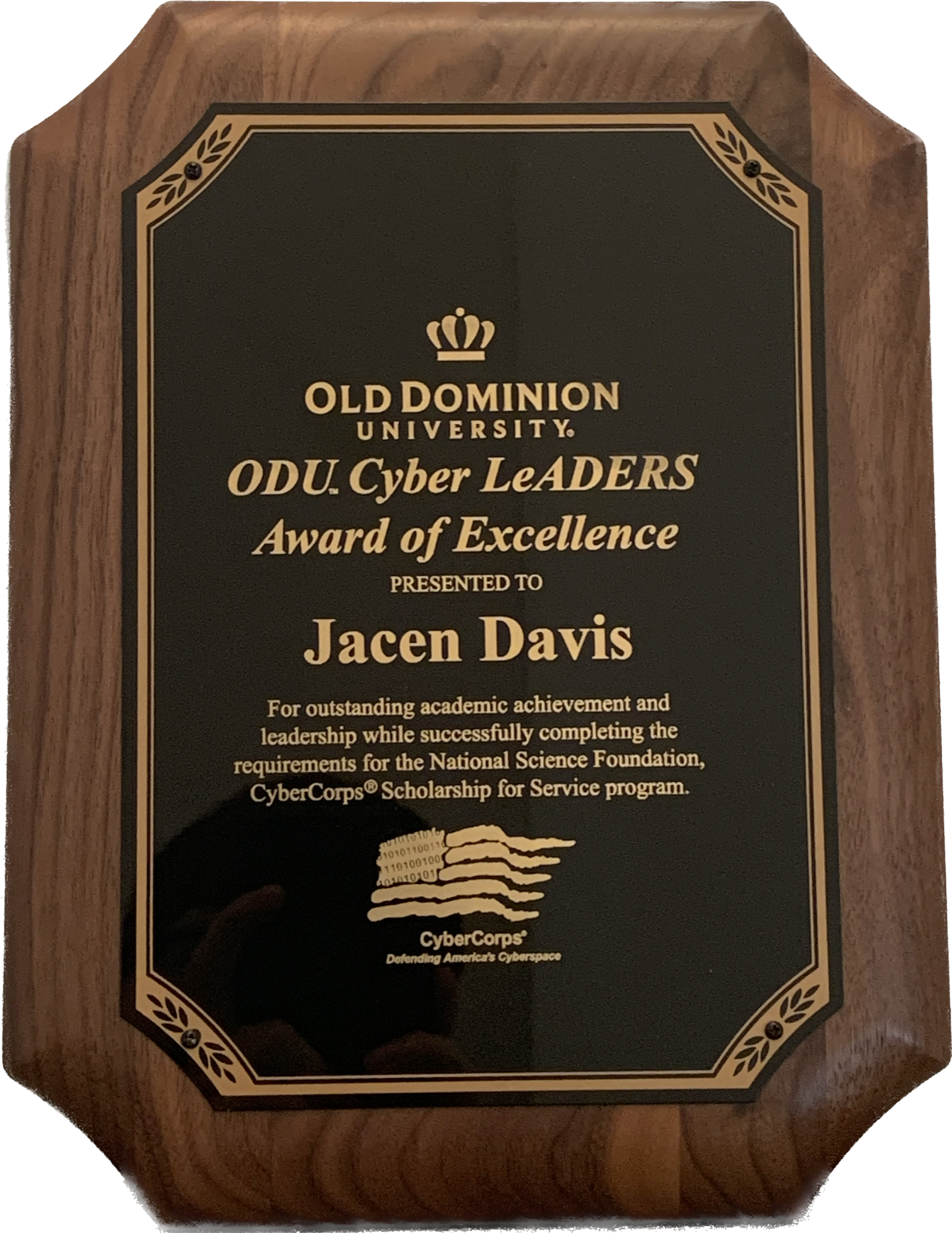IDS 493 ePortfolio

Introduction
My experience at ODU as part of ODU’s Cyber LeADERS program and the wider CyberCorps: Scholarship for Service program has been informative and transformative. The coursework helped me gain a fundamental understanding and grasp of our nation’s cybersecurity challenges, and the scholarship opportunities gave me skills in personal and professional leadership. I gained fundamental knowledge of various flaws and vulnerabilities in my cybersecurity coursework and various techniques for identifying and mitigating them in an organizational cybersecurity program. I gained hands-on skills in various cybersecurity tools and techniques, from learning Unix and Linux to vulnerability assessment, network scanning, and reconnaissance techniques used by penetration testers. On the defensive side, I learned cyber defense fundamentals through firewalls, intrusion prevention/detection systems and techniques, cyber policy and planning, and risk assessments. Finally, I gained an appreciation for the legal and ethical aspects of cybersecurity through CYSE 406 and PHIL 355E, which touched on sensitive national and legal topics concerning freedom of speech, the limitations of national security to defend against leaks, and right and wrong in various legal and ethical dilemmas.
ODU Reflection

The most personal experience during my time was the Cyber LeADERS program at ODU. It is by far the greatest and most consequential experience of my life thus far, having snowballed from years of seemingly unconnected yet important milestones within my life. The program gave me the confidence to pursue what I would have thought unimaginable years ago: to work for the Federal government and help shape its technological abilities for the common good. Throughout the program, I had networking opportunities, self-development, leadership training, technical training, internship, and, eventually, credible job opportunities. All that was required was for me to apply myself toward my education and the wider program’s community and self-sacrifice that is civil service. If it was not for this program, I would have stuck with my associate’s degree and found work in industry, potentially a little less where I wanted to go. It is not the sole reason or personable experience at ODU, but it is the primary experience that encapsulates all the others. I would not be who I am today if I did not pursue this path, which greatly matters for my personal growth.
IDS 493 Reflection
IDS 493 is, in essence, an ePortfolio course where the student (that’s me) designs their academic and professional portfolio that they can work on for the rest of their lives (a microcosm of real life or my poor interpretation). What you see now in my ePortfolio should not be what you see 3-5 years from now, or at least if you do, it is altered to fit the realities of the day. As I grow further, so will my experiences and the ePortfolio mature into something that reflects the person it entails. If it looks very similar to, say, now vs. 3-5 years ago, that ePortfolio is likely abandoned or ignored in some fashion. I am committed to not doing that, as I want the world to see my growth and development. The best way to utilize an ePortfolio is to treat it as a record of your skillset and motivator of your desired end goals. Instead of doing things in the dark, if at all possible, bring your skills and projects to the light.
Within IDS 493, I had to consider user experience (UX) and the interface (UI) they would use to navigate through my ePortfolio. As a website, the site structure needed to be consistent and organized, elements within the page had to be stylized and uniform, and the font had to be consistent and match the site’s style. From an accessibility aspect, the contrast ratio has to be good so the content is readable, and elements like images and audio/video elements need to be designed with screen readers in mind and include alternate text and descriptives to add context and improve experience. I also have to manage content within my ePortfolio to ensure content is consistent and relevant, which means there is a great deal more I have done but do not include because they are either not relevant enough or are not qualitative toward the portfolio and therefore have no place on my site. This site designing journey has taught me that my goal for the site is to develop it further - not stop or consider it complete. It will never be complete, just like myself. It will always grow and develop as I will grow and develop.
Conclusion
All these topics should reflect the interdisciplinary nature of my education within this ePortfolio. IDS 493 expresses my stated end goals and where I am now. My courses are significant points in my education that demonstrate critical thinking, analytical abilities, an overall desire to tinker, serve the community and present technical topics that concern proper cyber-hygiene. My experiences shaped my identity through significant opportunities to grow and shape my current trajectory. Finally, my personal projects drive my curiosity and desire to learn through tinkering and analysis of problems or goals I wish to accomplish.
Cybersecurity is an interdisciplinary field. It is the intersection of technology, policies that dictate its uses, and the people that benefit from it. From the technical perspective, the challenges are equally interdisciplinary as the next zero-day attack or other threat will always find a new flaw or bug to exploit, and it will be up to cybersecurity practitioners to catch up or be ahead of the curve, challenging their knowledge of technology. From the policy perspective, the policy must never falter too far behind the technical curve, lest it becomes outdated and easy to bypass or hamstring the defenders and organization in managing its cybersecurity goals. From the people-angle of cybersecurity, the laws, ethical implications, and policies must be considered, as people are our greatest asset and the source of our weakness. Bad policies, poor understanding of technology, and misuse of technology will lead to exposure to unmitigated risks towards people we care about. Failure to handle and mitigate this risk to the greatest extent possible will lead to disaster.
As a future cybersecurity professional, I affirm that I will not take my education and interdisciplinary knowledge lightly. I will ensure that I make great efforts to combat this threat through proper cyber hygiene and education and contribute, if possible, to good laws and policies that promote common welfare for the public in cyberspace. Finally, I will find solutions to problems that, if left unchecked, will cause disaster for society as a whole through unmitigated risk in cyberspace. While there are acute realities that restrain how effectively we can combat threats in cyberspace, not doing anything about them is unacceptable, so I have faith that despite these challenges, we can overcome them to minimize them to something manageable.